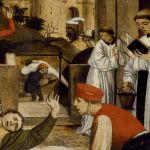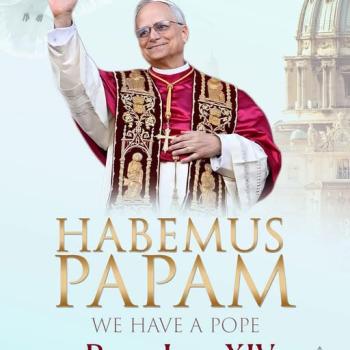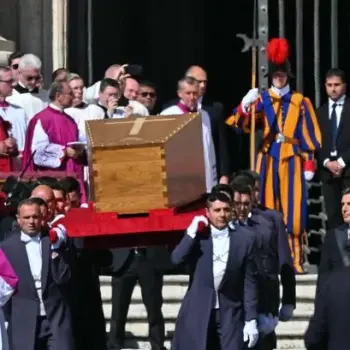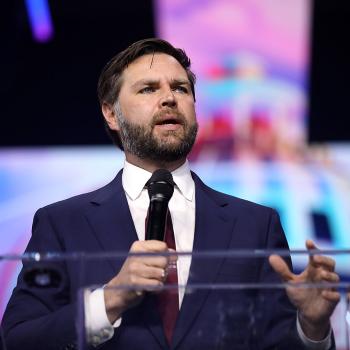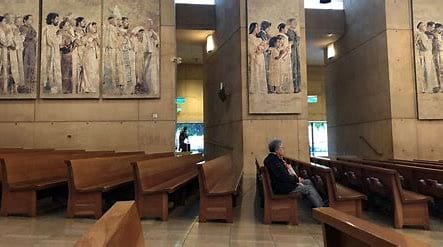
They Are Not Coming Back
They’re not coming back to Mass. Let me say it again. Catholics will not come back to Mass when the pandemic is over. I know, parishes will say that their wait lists are full and they are at max capacity for Sunday Mass right now. But that’s right now, when we can only have a hundred people, or a congregation of 25-35% of a church’s capacity. We priests have all heard the yearning of our Catholic parishioners to return to the sacraments. And we are gratified when we get the volunteers to sterilize the sanctuary and clean the pews after each celebration.
But it doesn’t matter. They’re not coming back. For the hundreds, perhaps even thousands who wish to return, there are millions of Catholics who have grown quite comfortable in a Eucharist free faith. And they are going to stay that way. The silent majority of Catholics doesn’t miss Mass at all. In my diocese before the plague, we used to have 100,000 Catholics attend Mass each Sunday. People want to come back, but it is a fraction of that number. Do not let full reservation lists delude us into thinking that the silent majority misses the Eucharist. There are reasons for this.
Reasons For Not Going To Mass
First of all, before the pandemic, the silent majority of Catholics didn’t go to Mass. So let me amend my statement. The silent majority of Mass-goers have quietly shifted away from a Eucharistic faith. They will still consider themselves Catholics, but the Church in America is about to discover the stripped-down, small remnant of a Eucharistic Church that Pope Benedict always talked about. Why has this happened? There are reasons, but there are also solutions. First the reasons why the majority of Mass going Catholics will not come back to Church.
A Conflict of Values
There is a conflict of values. On the one hand, we have been told for the health of society to forgo large gatherings. It’s for the best, we have heard, and so for the sake of the many, we have given up the Eucharistic Community. On the other hand, we know that our faith lives have depended on the Eucharist; we long for that as well. Now appear the bishops, who cast their lot with the secular authorities, and told us to give up the Eucharist for the sake of public health.
That creates a crisis of values inside us, and the majority–who often see Mass as counter-cultural, are easily convinced that the better part of valor is to not go to Church. They couldn’t if they wanted to, because the present rules prohibit most Catholics from going unless they reserve their place at the Eucharistic altar like you would reserve a dining seat at a fine restaurant. As uncomfortable as they feel, they punt and go with the public health option.
A Crisis of Authority
The bishops have produced a crisis of authority. They didn’t mean to, but they did anyway. Some may remember back in the 1960s when the bishops relieved us of the law of fasting and abstinence from meat on Friday. It was the lifting of the abstinence of meat that caused that crisis of authority, one from which we never recovered. Remember? One week, you could go to hell for deliberately eating steak on Friday and the next week, it was seen as a virtue. The bishops, back then, were held in higher reverence, but the people weren’t fooled. Authority or not, you can’t go to hell one week for doing something that the next week holds as ok. The late Rev. Andrew Greeley used to say that it was this decision, not the birth control one that convinced Catholics to turn to their own personal consciences and absolve themselves of actions they ordinarily would have let the Church judge them for.
Now, the bishops have removed the serious sin attribute of missing Mass on Sunday. Of course, they had to do that if they were not going to permit Masses to be held. One simply can’t place an impossible burden on the people. But think about it. For the ordinary Catholic, who never studied moral theology, a conundrum is caused. As soon as the churches are fully open, the bishops will restore the legal requirement that Catholics must go to Mass on Sunday. What normal Catholic is going to be impressed by that, particularly since they have not been sinning for the past many months by not going to Mass?
It might have helped if the bishops were holy, leadership oriented and shepherding, but they are not. That does not mean they are bad. Almost all of them are nice men and pious people. But they are not strong leaders or shepherds. They are managers who are trying their best to moderate a crisis. But their pronouncements have no moral force,; their reputations are in tatters for obvious reasons. The majority of Mass-going Catholics are not going to pay any attention when they are told they must now go to Mass again and to miss once again will place their souls in danger.
The Grave Mistake of Televised Mass
Televised Mass is a helpful adjunct to attended Mass, not a replacement. History will show that one of the worst things we did was proliferate televised Masses during the pandemic period. It eased the mind of a minority of our Catholics and did not attract the millions of our Mass-deprived Catholics. Televised Masses developed for the elderly and the sick, but there was never a theology about them. They were primarily good for sharing the Word of God, but did nothing about sharing his Body and Blood. Because no catechesis was given during the pandemic about these Masses, many found them a suitable replacement. They will continue to find them a suitable substitute for attended Mass when the pandemic is over.
The Television Mass has destroyed the sacramental nature of our faith and of the Eucharist. Already, dogma deprived Catholics had a poor understanding of the nature of the Eucharist, but now, by a simple action of trying to fill in a gap, they have been taught, passively I admit, that TV Mass is as good as attended Mass. We didn’t mean to do that. We thought we were doing the right thing. However, we couldn’t have killed the true understanding of the Eucharist better if we had hired the Eucharistic heretics of ages past to come back and preach to us. I actually lost a priest friend because I wouldn’t let him post his TV Mass from his parish on my FaceBook page. I had grave reasons to not do a TV Mass for those who wanted it, and I wasn’t going to contribute to a diminution of our understanding of Eucharist. It was a gut feeling that I have only begun to articulate, but I am glad to see that I am firmly in line with Pope Francis who also felt very uncomfortable doing such a thing and no longer does so.
Restrictions on Attending Mass Lead to Impossible Burdens
As we have opened back up, we have made it harder to attend the Mass–if we even get a reservation. First of all, person needs a reservation. Second, they have to wear a mask. Third, they have to sit apart from people. Fourth, their places are sterilized after they leave as if they were a germ in an ecclesial petri dish. Fifth, because we have to empower volunteers to keep attendance, contact trace, lead people to their seats, and exit them from the church, it is so easy for volunteers, who may be frustrated grade-school hall monitors, to become little dictators of access to the sacraments.So much for community. Joking a little here, but it makes it uncomfortable for the laity.
No Return…Unless…
Now, this is a bleak assessment, but I assure you the majority of Mass-going Catholics are not going to come back UNLESS we do something. And it’s up to the bishops to do it. I know I get on their case. Like I said, they are good men, but to my knowledge very few, if any, have developed the catechesis necessary to bring the faithful back to Mass. They just presume the crowds will return. Not a chance. We live in a society that says the activity that screams the loudest will be the one people to respond to. The people have found that many things vie for their time. We’ve been remarkably silent, often rolling over like a whipped dog to the secular authority, allowing it to tell us what to do.
It may seem simplistic to once again explain to Catholics why a real, attended Mass is necessary for their spiritual health, but that’s exactly what we have to do. For some people, the pandemic has made them stronger in their faith, but take a look at the last major plague to ravage to earth–the Black Death. That seriously weakened the Church, and it did not have a good response to encourage and spiritually direct Catholics to a firmer faith. Instead, we swung in a pendulum motion of mediocrity towards the Reformation.
A Time To Stress Better Music, Preaching and Lay Evangelization
One diocese I know of is starting their own Eucharistic Holy Year. Brilliant of that bishop! It will be a success. But catechesis is not the only thing necessary. Now is the time to review what our liturgies look like, how good the preaching is, and how we encourage the laity to evangelize. Music, preaching, and evangelization by the laity for the laity will truly help jump start a return to the Eucharist. But that takes such a will from the established authorities whether that be bishops or pastors. It takes real work. And I’m just not sure the Church is ready with that energy.
Some of our priests have come up with such creative ways to keep the faith frontmost in their parishioners’ minds. That creativity needs to be harnessed in an organized, diocesan way so that the word can get out to all Catholics that the Church is not simply resuming activity, but is recharged, renewed and endowed with the Spirit to actively go out and bring back not only our ordinary Mass-going Catholics but those who long ago absented themselves from the Eucharist. The Pope’s outreach to those in invalid marriages as well as the Church’s outreach to minorities who suffer racism or discrimination would be a crucial part in this effort. While all of us priests can sure use help preaching, this is a perfect time for dioceses to help retool priest’s preaching abilities, particularly when when parishes still have a ways to be fully open. And of course, music. Since the hymnals have disappeared, perhaps a new appreciation for good liturgical music could be sought. (I’m afraid I’m going to lose this one. “Gather Us In”, “All Are Welcome”, “You Are Mine” are Covid-19 immune I think).
Carpe Diem
None of these things is really that hard to accomplish. None of them requires a degree in rocket science. The Dominican and Franciscan reforms of the thirteenth century and the Jesuit outreach to the secular world in the sixteenth, revitalized this great community of the Church, and we once again changed the world. So the challenge is ours. Remember, they are not coming back if we do nothing. They just won’t. Carpe diem–seize the day you bishops, priests deacons and well-formed laity. We have a window of opportunity. Let’s not squander it.



